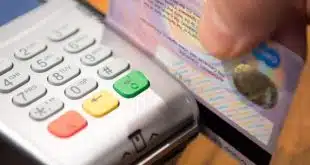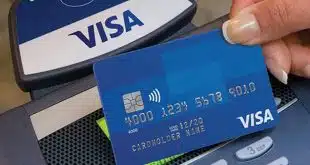Signature-based debit continued to grow at double-digit rates in the second quarter, as indicated by statistics released today by MasterCard International. Total MasterCard signature, or off-line, debit volume hit $48 billion in the U.S., up 32.3% over the same period last year. The point-of-sale component of this activity was $29.1 billion, an increase of 27.7%. For the first half of 2005, the corresponding numbers were $91.2 billion, up 31.1%, and $55.5 billion, a 26% jump. By contrast, MasterCard's U.S. credit card volume for the first six months grew 4.6%, to $273 billion, overall; point-of-sale activity on credit reached $223 billion, an 8.3% rise. Cardholders sign for signature-debit transactions as they do for credit card transactions, rather than entering a PIN. The bank card network reports its total U.S. purchase transactions on credit and signature debit totaled 2.09 billion in the second quarter, with 1.4 billion transactions on credit and 694.5 million on signature debit cards. For the first half of the year, point-of-sale payments reached 3.97 billion, with 2.65 billion on credit and 1.32 billion on debit. The card association ended the first half of 2005 with 351.6 million total cards in the U.S linked to 295.8 million accounts. Of these, signature debit accounted for 64.8 million accounts and 70.5 million cards. Merchant locations totaled 5.9 million. Beyond reporting its growth in debit, the association's quarterly statement also sums up the progress of contactless card technology in the U.S. PayPass, which is MasterCard's contactless program, is now live at 1,100 Ritz Camera Centers, 309 Sheetz Inc. convenience stores, 170 7-Eleven Inc. c-stores, and 114 Boater's World Marine Centers (part of the Ritz chain). As with rival technologies from Visa U.S.A. and American Express Co., PayPass relies on radio waves to transmit card-account data from chips embedded in cards or other tokens to readers linked to point-of-sale terminals. The three card companies' contactless programs rely on the same international technology standard and so are interoperable.
Check Also
Visa Says It’s Positioning Itself to Be a ‘Hyperscaler’ in Payments
Visa Inc. chief executive Ryan McInerney touted the card network’s ability to build and deliver …





